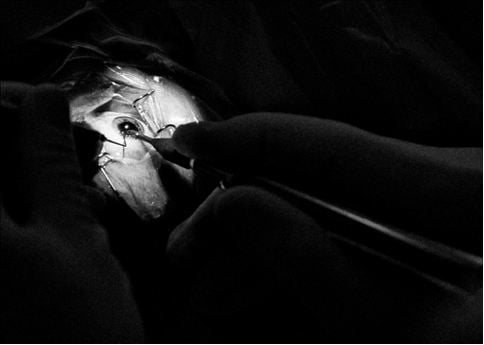Tackling the common question of post-cataract surgery and vision.
There are many vision problems that plague millions of people across the country each and every year, from minor vision impairments to major diseases that can seriously impact your eyesight. Luckily, with all of the advances in vision technology that have occurred over the years and the ever-growing understanding of some of these serious eye diseases, most vision problems can be improved before they impact your daily life or eyesight.
However, when it comes to surgical vision procedures, are these improvements a temporary fix or something that will last long after your eyes have healed? In the case of cataract surgery, many people will be relieved to hear that cataracts do not grow back once they are removed.

Cataracts are caused by the clouding of the natural lens inside the eye. People often feel as though they are looking through a veil or greasy window. Other symptoms include blurred vision, difficulty driving at night, or trouble reading.
Despite what many people believe, cataracts do not only affect senior citizens―although they are the primary age group who is affected by this vision impairment. According to Prevent Blindness America, cataracts affect more than 22 million Americans aged 40 and older. In fact, more than 30.1 million Americans are projected to have cataracts by the year 2020 as the American population continues to grow each and every year.
Luckily, cataract surgery has had much success by removing the clouded lens which causes vision impairment and replaces it with an artificial lens implant that allows the patient to see clearly. In fact, it is one of the safest operations done today with more than 95% of surgeries ending successfully. Cataracts can now even be removed with the aid of a femtosecond laser!
But, the question that many patients with cataract still have is how effective will this procedure remain in the years following surgery. Will cataracts ever reappear in the years ahead?
The good news for patients who undergo cataract surgery is that once a cataract us surgically removed, it cannot grow back. However, blurred vision may develop after cataract surgery, mimicking the symptoms of the original cataract.
Following surgery, patients may later develop a condition called posterior capsular opacification (PCO), which is commonly referred to as a “secondary cataract.”
This is a very misleading reference, According to a recent article in the New York Times, The cataract has not actually grown back. Instead, in about 20 percent of patients, the capsule that once supported the cataract has become cloudy, or opacified. A simple laser procedure done in the office can treat the problem effectively.”
If you or someone you know has cataracts and are thinking of undergoing surgery, be sure to contact Dr. Cary M. Silverman and the helpful staff at OCLI. We can not only help you determine whether you are a good candidate for this helpful medical procedure, but we can also give you a great overview of what you can expect from life after cataract surgery.